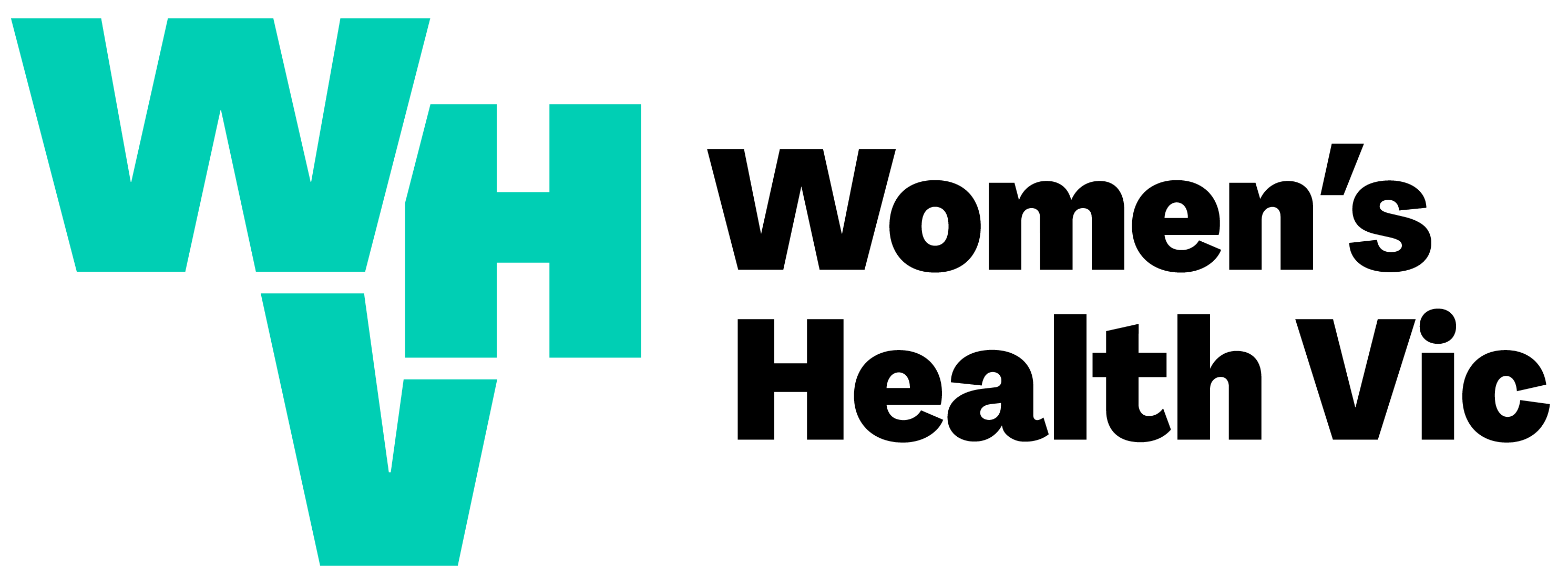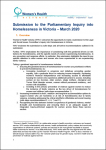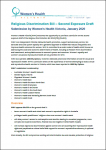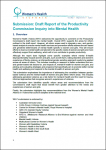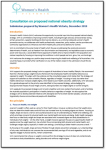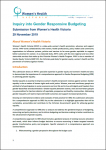This submission emphasises the importance of considering both the gendered drivers of homelessness, and the specific needs of women experiencing homelessness, in any prevention and response efforts.
This submission outlines the reasons WHV opposes the Religious Discrimination Bill.
Overall WHV supports the areas for reform outlined in the draft report. However, all reform areas need to integrate a sex- and gender-based analysis to ensure mental health services and prevention efforts address the sex-based and gendered determinants of mental health specific to women and girls.
Our submission to the National Obesity Strategy consultation recommends that the National Obesity Strategy adopts a weight-inclusive framework that emphasises health over weight, takes a gendered approach to health promotion and takes an active role in reducing weight stigma.
This submission draws on WHV's specialist expertise in gender equity and women's health to demonstrate the importance of a comprehensive approach to Gender Responsive Budgeting (GRB) in achieving gender equality.
WHV's submission, endorsed by multiple agencies, makes 26 recommendations regarding the content of the code of ethics and related practice notes.
WHV asserts that the exposure draft of the Religious Discrimination Bill privileges the right to religious freedom over the rights of women and marginalised groups to be free from discrimination and to access health, employment, education and other services.
WHV's submission focuses on the need for an intersectional gender-sensitive approach to be applied to all areas of mental health policy, health promotion and service provision.
WHV's submission to the Victorian Department of Health and Human Services responds to the ‘Areas for discussion’ questions in the consultation paper.
This submission argues the need to apply an intersectional gender lens to mental health reform – from prevention and early intervention through to treatment and recovery, including investing in (new and existing) intersectional gender equity strategies to support the primary prevention of mental ill-health.
